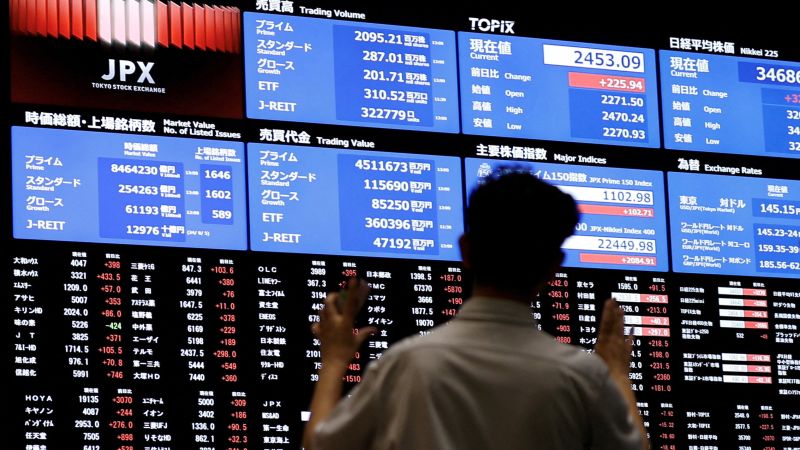Asian markets made solid gains on Wednesday, with Japanese shares reversing early losses after a central bank official played down the prospect of an immediate hike in interest rates.
The benchmark Nikkei 225 gained 3%, bouncing back from losses of 2.5% earlier in the session, following fresh comments from Shinichi Uchida, deputy governor of the Bank of Japan (BOJ).
Elsewhere in Asia, South Korea’s Kospi gained 2.4%, while Hong Kong’s Hang Seng index was 1.3% higher. Taiwan’s Taiex was up 3.8%. The gains follow days of volatility, which saw the Nikkei suffering on Monday its biggest daily loss since 1987.
According to Reuters, Uchida said the intense market volatility over the past week could “obviously” change the BOJ’s rate hike path, if it affects the central bank’s economic and inflation projections.
“We won’t raise interest rates when financial markets are unstable,” he was quoted as saying in a speech to executives in the northern Japanese city of Hakodate. “As we’re seeing sharp volatility in domestic and overseas financial markets, it’s necessary to maintain current levels of monetary easing for the time being.”
Uchida’s comments contrast with the hawkish tone struck by the BOJ in recent weeks, which have forced many market participants to unwind their yen carry trades, a widely employed investment strategy.
Decades of extremely low interest rates in Japan have seen many investors borrow cash cheaply there before converting it to other currencies to invest in higher-yielding assets. The undoing of this strategy is the major trigger for the market upheaval, according to some market watchers.
The US dollar surged more than 2% to 147.77 against the yen following Uchida’s remarks. It was a different direction of travel from recent weeks, when the yen was gaining in value against the greenback, due to the BOJ’s hawkishness.
Japan’s stock market has been hard-hit by the rapid appreciation of the yen, which undermines the export competitiveness of the country’s manufacturers.
Tokyo’s Topix index, which is broader than the Nikkei, had made modest gains early during Wednesday’s trading session. It is now strongly in the black, last trading more than 4% higher.
On Tuesday, the Dow closed about 0.8% higher, while the S&P 500 and the Nasdaq each closed up about 1%.
Read the full article here




